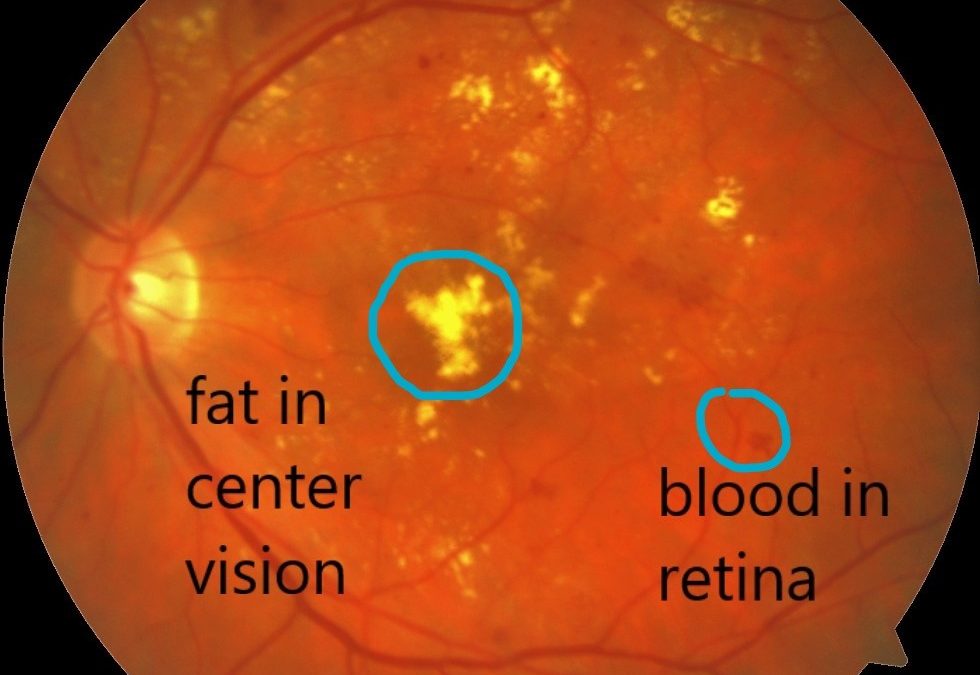Macular edema is a serious eye problem in patients with diabetes.
Retina specialists are often asked by general ophthalmologists or optometrists to treat the eye complications of diabetes. One of the most common complications is diabetic macular edema or DME. Retina specialists use clinical examination in the office to determine if the edema (or swelling) is “clinically significant.” Signs of clinically significant macular edema are blurred vision, trouble seeing during the day, difficulties reading, and (less commonly) eye floaters.
Clinically significant macular edema (CSME) is present if any of the three exam findings are seen by your ophthalmologist.
- Any retinal edema within 500 microns of the center of the fovea (the most central part of your vision)
- Hard exudates (fats) within 500 microns of the center of the fovea if associated with retinal thickening
- Retinal edema greater than one optic nerve disc in size and within one disc diameter of the center of the fovea
My eye doctor found macular edema. How can I be treated?
Patients with clinically significant macular edema may benefit from eye laser or eye injections. Common eye injections include Avastin, Lucentis, and Eylea. Eye injections of steroids can be helpful in some cases. Steroids are used sparingly as they can cause cataracts and glaucoma over time and with repeated use. Good control of blood sugars and blood pressure is critical in the treatment of macular edema.
How can I be tested for macular edema?
A dilated eye exam is the most useful test to determine if you have macular edema. Your retina specialist may take OCT images (showing the retina in cross section) to show the degree of retinal edema and your improvement over time with repeated eye injections. A fluorescein angiogram (FA) may be helpful to determine the degree and severity of the retinal swelling.
Without treatment, your vision may become blurred over time since macular edema involves the part of the retina responsible for central vision.
If you are interested, here is some additional reading about macular edema from EyeWiki.
If you are diabetic and think you may have diabetic macular edema, call Dr. Stelton today or contact him here.

